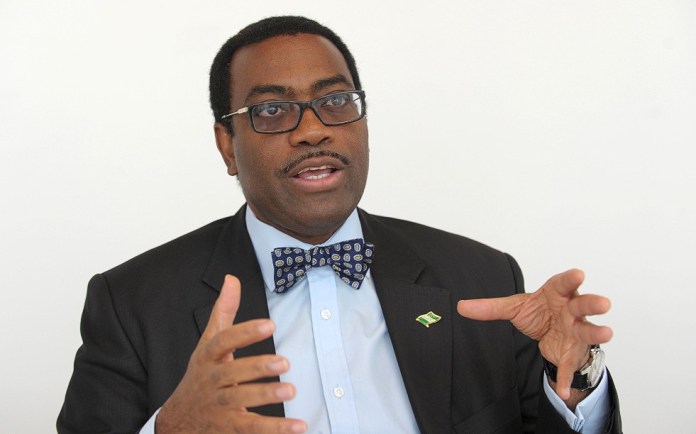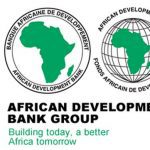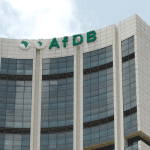James Emejo evaluates the possible impact of the recent loan advance by the African Development Bank (AfDB) to Nigeria to support its budget deficit and finance critical infrastructure
After an array of troubling economic data, worsened by a slide into recession, the $1 billion loan advancement to the Federal Government by the African Development Bank (AfDB) to help the country shore up its 2016 budget shortfalls should ordinarily be a great lifeline for government and the economy in particular.
There’s no gainsaying the fact that Nigeria’s economic woes had been compounded by the drastic and dramatic fall in the price of crude oil, debilitating effect of militancy in the oil-rich Niger Delta region and the resultant contraction of revenues to government, which translated to negative GDP growth rate, high unemployment rate, among others.
James Emejo evaluates the possible impact of the recent loan advance by the African Development Bank (AfDB) to Nigeria to support its budget deficit and finance critical infrastructure
After an array of troubling economic data, worsened by a slide into recession, the $1 billion loan advancement to the Federal Government by the African Development Bank (AfDB) to help the country shore up its 2016 budget shortfalls should ordinarily be a great lifeline for government and the economy in particular.
There’s no gainsaying the fact that Nigeria’s economic woes had been compounded by the drastic and dramatic fall in the price of crude oil, debilitating effect of militancy in the oil-rich Niger Delta region and the resultant contraction of revenues to government, which translated to negative GDP growth rate, high unemployment rate, among others.
James Emejo evaluates the possible impact of the recent loan advance by the African Development Bank (AfDB) to Nigeria to support its budget deficit and finance critical infrastructure
After an array of troubling economic data, worsened by a slide into recession, the $1 billion loan advancement to the Federal Government by the African Development Bank (AfDB) to help the country shore up its 2016 budget shortfalls should ordinarily be a great lifeline for government and the economy in particular.
There’s no gainsaying the fact that Nigeria’s economic woes had been compounded by the drastic and dramatic fall in the price of crude oil, debilitating effect of militancy in the oil-rich Niger Delta region and the resultant contraction of revenues to government, which translated to negative GDP growth rate, high unemployment rate, among others.
James Emejo evaluates the possible impact of the recent loan advance by the African Development Bank (AfDB) to Nigeria to support its budget deficit and finance critical infrastructure
After an array of troubling economic data, worsened by a slide into recession, the $1 billion loan advancement to the Federal Government by the African Development Bank (AfDB) to help the country shore up its 2016 budget shortfalls should ordinarily be a great lifeline for government and the economy in particular.
There’s no gainsaying the fact that Nigeria’s economic woes had been compounded by the drastic and dramatic fall in the price of crude oil, debilitating effect of militancy in the oil-rich Niger Delta region and the resultant contraction of revenues to government, which translated to negative GDP growth rate, high unemployment rate, among others.
James Emejo evaluates the possible impact of the recent loan advance by the African Development Bank (AfDB) to Nigeria to support its budget deficit and finance critical infrastructure
After an array of troubling economic data, worsened by a slide into recession, the $1 billion loan advancement to the Federal Government by the African Development Bank (AfDB) to help the country shore up its 2016 budget shortfalls should ordinarily be a great lifeline for government and the economy in particular.
There’s no gainsaying the fact that Nigeria’s economic woes had been compounded by the drastic and dramatic fall in the price of crude oil, debilitating effect of militancy in the oil-rich Niger Delta region and the resultant contraction of revenues to government, which translated to negative GDP growth rate, high unemployment rate, among others.
James Emejo evaluates the possible impact of the recent loan advance by the African Development Bank (AfDB) to Nigeria to support its budget deficit and finance critical infrastructure
After an array of troubling economic data, worsened by a slide into recession, the $1 billion loan advancement to the Federal Government by the African Development Bank (AfDB) to help the country shore up its 2016 budget shortfalls should ordinarily be a great lifeline for government and the economy in particular.
There’s no gainsaying the fact that Nigeria’s economic woes had been compounded by the drastic and dramatic fall in the price of crude oil, debilitating effect of militancy in the oil-rich Niger Delta region and the resultant contraction of revenues to government, which translated to negative GDP growth rate, high unemployment rate, among others.
James Emejo evaluates the possible impact of the recent loan advance by the African Development Bank (AfDB) to Nigeria to support its budget deficit and finance critical infrastructure
After an array of troubling economic data, worsened by a slide into recession, the $1 billion loan advancement to the Federal Government by the African Development Bank (AfDB) to help the country shore up its 2016 budget shortfalls should ordinarily be a great lifeline for government and the economy in particular.
There’s no gainsaying the fact that Nigeria’s economic woes had been compounded by the drastic and dramatic fall in the price of crude oil, debilitating effect of militancy in the oil-rich Niger Delta region and the resultant contraction of revenues to government, which translated to negative GDP growth rate, high unemployment rate, among others.
James Emejo evaluates the possible impact of the recent loan advance by the African Development Bank (AfDB) to Nigeria to support its budget deficit and finance critical infrastructure
After an array of troubling economic data, worsened by a slide into recession, the $1 billion loan advancement to the Federal Government by the African Development Bank (AfDB) to help the country shore up its 2016 budget shortfalls should ordinarily be a great lifeline for government and the economy in particular.
There’s no gainsaying the fact that Nigeria’s economic woes had been compounded by the drastic and dramatic fall in the price of crude oil, debilitating effect of militancy in the oil-rich Niger Delta region and the resultant contraction of revenues to government, which translated to negative GDP growth rate, high unemployment rate, among others.














